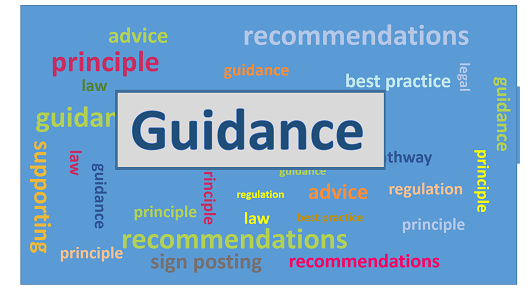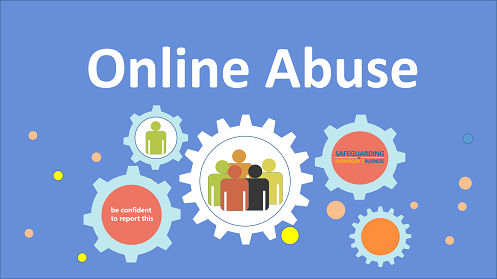Safeguarding News September 2023
Welcome to the SAFEcic September newlsetter highlighting newsworthy safeguarding topics.
Headline Highlights
This issue of the newsletter includes details about the Online Safety Bill, which has now been signed off by Parliament and will soon become law. We also highlight the progress on the overhaul of Prevent, as new guidance is published. This edition of the newsletter also includes useful guidance on utilising after-school clubs and accessing other community activities. To read these and many more articles of interest simply scroll down and click on the appropriate headline..
An Exclusive Offer For Newsletter Readers
SAFEcic is offering its newsletter readers 25% off Mix and Match course credits *** using code OCT25 at the checkout. This code is valid until close of business on 13 November 2023. Each credit purchased can be used for one complete online course of your choice including:
- Standard safeguarding courses (child or adult), ideal for all staff who work with children and young people or adults
- Leading on safeguarding courses (child or adult), designed for those who manage safeguarding concerns in their organisation.
- Safeguarding for Trustees (Ensuring Compliance) is also a Mix and Match course - vital for trustees to ensure their charity is fulfilling it's legal "Safeguarding Duty of Care".
Please Note:
*** Only one discount code or offer can be applied to each transaction. SAFEcic's Standard Terms and Conditions apply.
SAFEcic training credits do not expire, so there is no deadline for using them. You will always be able to use all of the credits you purchase from us, so it's worth stocking up!
Training Schedule
Our latest training schedule is listed below and feel free to share this email with your colleagues and they too can join our newsletter database.
To sign up simply click here.
Services Update
SAFEcic is also accepting many more bookings for its Rapid Review Service, its face to face safeguarding training and audit services. There is also a packed calendar of blended learning events available to book for your organisation. The courses are a very cost effective way of training your staff and volunteers.
SAFEcic Blended Learning Training Calendar
Leading on Child and Adult Safeguarding
Safeguarding Training, Leading on Child and Adult. Online course plus Zoom
Wed 18 October 2023
10:30 - 12:00 GMT
Safeguarding Training, Leading on Child and Adult. Online course plus Zoom
Wed 22 November 2023
10:30 - 12:00 GMT
Safeguarding Training, Leading on Child and Adult. Online course plus Zoom
Tue 12 December 2023
10:30 - 12:00 GMT
Safeguarding Training, Leading on Child and Adult. Online course plus Zoom
Tue 9 January 2024
10:30 - 12:00 GMT
Safeguarding Training, Leading on Child and Adult. Online course plus Zoom
Thu 8 February 2024
10:30 - 12:00 GMT
Safeguarding Training, Leading on Child and Adult. Online course plus Zoom
Tue 12 March 2024
10:30 - 12:00 GMT
Safeguarding Training, Leading on Child and Adult. Online course plus Zoom
Tue 16 April 2024
10:30 - 12:00 GMT
Safeguarding Training, Leading on Child and Adult. Online course plus Zoom
Wed 8 May 2024
10:30 - 12:00 GMT
Safeguarding Training, Leading on Child and Adult. Online course plus Zoom
Tue 11 June 2024
10:30 - 12:00 GMT
Safeguarding Training, Leading on Child and Adult. Online course plus Zoom
Tue 9 July 2024
10:30 - 12:00 GMT
Standard Child and Adult Safeguarding
Safeguarding Training, Standard Child and Adult. Online Course plus Zoom
Thu 30 November 2023
10:30 - 12:00 GMT
Safeguarding Training, Standard Child and Adult. Online Course plus Zoom
Tue 13 February 2024
10:30 - 12:00 GMT
Safeguarding Training, Standard Child and Adult. Online Course plus Zoom
Wed 27 March 2024
10:30 - 12:00 GMT
Safeguarding Training, Standard Child and Adult. Online Course plus Zoom
Thu 16 May 2024
10:30 - 12:00 GMT
Safeguarding Training, Standard Child and Adult. Online Course plus Zoom
Tue 2 July 2024
10:30 - 12:00 GMT
Safeguarding: Trustees’ legal responsibilities
Safeguarding: Trustees' legal responsibilities. Online Course plus Zoom
Thu 21 September 2023
10:00 - 11:30 GMT
Safeguarding: Trustees' legal responsibilities. Online Course plus Zoom
Tue 21 November 2023
10:00 - 11:30 GMT
Safeguarding: Trustees' legal responsibilities. Online Course plus Zoom
Wed 31 January 2024
10:00 - 11:30 GMT
Safeguarding: Trustees' legal responsibilities. Online Course plus Zoom
Thu 14 March 2024
10:00 - 11:30 GMT
Safeguarding: Trustees' legal responsibilities. Online Course plus Zoom
Tue 21 May 2024
10:00 - 11:30 GMT
Safeguarding: Trustees' legal responsibilities. Online Course plus Zoom
Wed 10 July 2024
10:00 - 11:30 GMT
Safer Recruitment Training. Online course plus 2 Hr Live Online training
Thu 7 December 2023
10:00 - 12:00 GMT
Safer Recruitment Training. Online course plus 2 Hr Live Online training
Wed 14 February 2024
10:00 - 12:00 GMT
Safer Recruitment Training. Online course plus 2 Hr Live Online training
Thu 25 April 2024
10:00 - 12:00 GMT
Safer Recruitment Training. Online course plus 2 Hr Live Online training
Tue 4 June 2024
10:00 - 12:00 GMT
Managing and Leading on International Safeguarding
Managing and Leading on International Safeguarding Training. Online course plus Zoom
Thu 2 November 2023
10:00 - 11:30 GMT
Managing and Leading on International Safeguarding Training. Online course plus Zoom
Wed 28 February 2024
10:00 - 11:30 GMT
SAFEcic's free hub resources by setting are available through the SAFEcic.co.uk main menu. Alternately you can bookmark the links below:
Education | Dental | Charities | GP & Primary Medical Services | Fath Groups | Entertainment & Leisure | Working Overseas |
Legislation

Legislation UK
1. Britain makes the internet safer, as the Online Safety Bill finished and ready to become law
This major milestone means the government is within touching distance of delivering the most powerful child protection laws in a generation, while ensuring adults are better empowered to take control of their online lives, while protecting our mental health.
The bill takes a zero-tolerance approach to protecting children and makes sure social media platforms are held responsible for the content they host. If they do not act rapidly to prevent and remove illegal content and stop children seeing material that is harmful to them, such as bullying, they will face significant fines that could reach billions of pounds. In some cases, their bosses may even face prison.
Social media platforms will be expected to:
- remove illegal content quickly or prevent it from appearing in the first place, including content promoting self-harm
- prevent children from accessing harmful and age-inappropriate content
- enforce age limits and age-checking measures
- ensure the risks and dangers posed to children on the largest social media platforms are more transparent, including by publishing risk assessments
- provide parents and children with clear and accessible ways to report problems online when they do arise
In addition to its firm protections for children, the bill empowers adults to take control of what they see online. It provides three layers of protection for internet users which will:
- Make sure illegal content will have to be removed
- Place a legal responsibility on social media platforms to enforce the promises they make to users when they sign up, through terms and conditions
- Offer users the option to filter out harmful content, such as bullying, that they do not want to see online
If social media platforms do not comply with these rules, Ofcom could fine them up to £18 million or 10% of their global annual revenue, whichever is biggest – meaning fines handed down to the biggest platforms could reach billions of pounds.
The regulator will immediately begin work on tackling illegal content and protecting children’s safety, with its consultation process launching in the weeks after Royal Assent. It will then take a phased approach to bringing the Online Safety Bill’s into force.
2. Sexual offences: changes in privacy and anonymity protections for victims and suspects come into effect in the Justice (Sexual Offences and Trafficking Victims) Act (Northern Ireland) 2022
The Department of Justice has announced the new laws, which implement recommendations made by Sir John Gillen in his Review into the law and procedures in serious sexual offences. The laws provide for:
- The exclusion of the public from court in serious sexual offence cases, where only those necessary to the effective functioning of the proceedings, and bona fide representatives of the press, will be allowed in the court during Crown Court trials and appeals hearings in the Court of Appeal;
- The extension of existing lifelong anonymity for victims of sexual offending for a period of 25 years after the victim has died;
- Anonymity for suspects in sexual offence cases up to the point of charge. Those not subsequently charged will have anonymity for their lifetime and for 25 years after their death;
- Nothing can be published which leads to the identification of a victim of a sexual offence, or a suspect in a sexual offence case. Those who breach the anonymity provisions face up to six months’ imprisonment.
Statutory Guidance

England and Wales
Prevent Guidance
Overhaul of Prevent underway with new guidance published
The government is on track to fulfil the majority of the recommendations from the Independent Review of Prevent by February 2024, with significant changes already implemented to bolster governance and embed oversight.
Ten out of the 34 recommendations have been delivered in full, and progress has been made against every single recommendation, with 68 of the 120 required tasks completed.
Refreshed draft Prevent duty guidance has been published today and a statutory instrument laid in the House of Commons to bring it into force under the Counter-Terrorism and Security Act, aiding frontline professionals in stopping people from becoming terrorists or supporting terrorism.
Strengthened due diligence checks on civil society organisations will ensure that under no circumstances will Prevent work with or fund those who legitimise or support extremists. Prevent funding has ceased with groups which have fallen foul of these standards.
The guidance delivers on several key recommendations of the independent review, making it clear that Prevent’s objective is to tackle the ideological causes of terrorism. It includes practical advice for those with responsibility to stop people from becoming terrorists or supporting terrorism. It will help frontline professionals in healthcare, education, local authorities, prisons, probation and the police comply with the Prevent duty. Terminology has been updated in the guidance throughout to reflect an individual’s susceptibility to terrorism and vulnerability will only be used where appropriate.
A refreshed ministerial oversight board will meet in the coming months to oversee continued implementation of the independent review and ensure delivery remains in line with Shawcross’ recommendations.
Good Practice Guidance

1. Using after-school clubs, tuition and community activities updated Guidance.
Written for parents and carers, it explains what school and activities clubs, tutors and coaches should be doing to provide a safe environment for the children that attend their setting. Settings could include:
- community activities - for example, youth clubs
- before- and after-school clubs
- holiday clubs
- supplementary schools - for example, language, cultural and religious
- private tuition
- music lessons
- sports training and coaching
A typical provider may be:
- a tutor who works alone from their home
- a coach who runs training sessions in a sports field for children
- a club with volunteers or paid staff members
There is no single legal framework that governs how clubs and activities for children operate. Although these settings offer provision for children, their staff members and volunteers are not typically inspected, overseen or assessed by any regulatory organisation.
This means that when choosing a club, tutor or coach for your child, it’s important to:
- ask questions
- check the policies and insurance they have in place
You should feel able to ask questions about the provider’s activities and policies. A well-run and trustworthy provider will welcome questions. They should be willing to give this kind of information to anyone who leaves a child in their care.
To satisfy yourself that it is a safe environment, you may wish to:
- meet the providers before your child attends a first session
- ask providers if you can meet with them during a session
If a provider is going to be working on a one-to-one basis with your child (such as in the case of a private tutor), you may wish to supervise sessions.
UK
2. Updated Guidance: A 10 step guide to sharing information to safeguard children
Step 1: Be clear about how data protection can help you share information to safeguard a child.
Step 2: Identify your objective for sharing information, and share the information you need to, in order to safeguard a child.
Step 3: Develop clear and secure policies and systems for sharing information.
Step 4: Be clear about transparency and individual rights.
Step 5: Assess the risks and share as needed.
Step 6: Enter into a data sharing agreement.
Step 7: Follow the data protection principles.
Step 8: Share information using the right lawful basis.
Step 9: Share information in an emergency.
Step 10: Read our data sharing code of practice.
Read the guidance and watch the video from the Information Commissioner.
3. End-to-end encryption and child safety guidance published
End-to-end encryption (E2EE) is a secure communication system where messages can only be seen by the sender and receiver.
This guidance explains:
- what end-to-end encryption is
- the risks end-to-end encryption poses to children on messaging platforms if social media companies decide to implement it without robust safety measures that ensure they can still detect and report child sexual abuse
The guidance also:
- explains the current technological safeguards that social media companies use to prevent and report child sexual abuse on non-encrypted messaging platforms
- provides key statistics about the scale of child abuse online in the UK
- lists further information and support for anyone who has been affected by these issues.
Inquiry & Review Reports

Concerns substantiated in Mike Pilavachi investigation
The internal Church investigation into Mike Pilavachi, being conducted by the National Safeguarding Team, NST, and the Diocese of St Albans, has now concluded.
Having explored the safeguarding concerns fully, according to House of Bishops guidance, the investigation team has concluded that they are substantiated.
These relate to conduct in his leadership and ministry, both before and after he was ordained in 2012, spanning 40 years from his time as a youth leader through to current day.
The overall substantiated concerns are described as an abuse of power relating to his ministry, and spiritual abuse; described in guidance as ‘a form of emotional and psychological abuse characterised by a systematic pattern of coercive and controlling behaviour in a religious context’. It was concluded that he used his spiritual authority to control people and that his coercive and controlling behaviour led to inappropriate relationships, the physical wrestling of youths and massaging of young male interns.
Mike Pilavachi has resigned from his role at Soul Survivor and resigned his licence to the Bishop of St Albans, and therefore cannot currently minister in the Church of England. More widely the Church is committed to ensuring that relevant safeguarding information is passed on if he were to minister elsewhere both in this country and abroad. Support has been offered throughout the investigation.
Now this stage of the process is over Soul Survivor Watford has commissioned an independent review to be led by Fiona Scolding KC. This is separate and independent of the internal Church of England investigation, with a full report to be published at the end.
Support and contact
If you would like to speak to anyone connected to this investigation or have been affected, please be assured that any concerns raised will be treated with the utmost sensitivity and support / access to counselling is available. Please contact This email address is being protected from spambots. You need JavaScript enabled to view it. or This email address is being protected from spambots. You need JavaScript enabled to view it..
If you or anyone you are in contact with are affected by this news and want to talk to someone independently, please call the Safe Spaces helpline on 0300 303 1056
Research Reports, Consultations and Studies

Stable homes, built on love responds to recommendations made by 3 independent reviews - the Independent Review of Children’s Social Care, the National Panel’s review into the murders of Arthur Labinjo-Hughes and Star Hobson, and the Competition and Markets Authority (CMA) report.
Stable homes, built on love set out how we will help families overcome challenges, keep children safe, and make sure children in care have stable loving homes, long-term loving relationships, and opportunities for a good life.
The strategy outlines 6 pillars of support to achieve this, which includes bolstering family help, bettering multi-agency working, better supporting children in care and care leavers, and ensuring the children’s care system continuously learns and improves, making better use of evidence and data.
Regulatory Bodies

Charity Commission
1. Regulator publishes new guidance on charities’ social media use
The guidance makes clear that social media can be a highly effective way for a charity to engage its audiences and communicate about its work but that there are risks involved, which trustees should plan for. The new guidance is clear that charities using social media should have a social media policy in place and should ensure the policy is followed. This is standard practice in many charities and across other sectors and industries and can help an organisation avoid problems and address issues swiftly if they occur.
The regulator says its casework has revealed a knowledge gap. Trustees are not always aware of the risks that may arise from using social media, meaning that some do not have sufficient oversight of their charity’s activity, leaving them and their charity vulnerable. The guidance aims to help trustees understand these risks, how their legal duties apply, and what to consider if issues arise.
2. Charity Commission launches new quiz for trustees to test their knowledge
Source: The Charity Commission published on this website Wednesday 27 September 2023
The Commission has also launched the next phase of its trustees’ campaign which aims to increase charity trustees’ knowledge and drive a positive change in charities’ governance.
Online Safety

1. Innovations in detecting and removing child sexual abuse material have been made possible by a grant from Nominet. A “revolution” in assessing online child sexual abuse imagery is helping analysts assess multiple child sexual abuse images in seconds, rather than hours.
Clustering technology is now being used by the Internet Watch Foundation (IWF) to link similar images together, meaning hotline teams can quickly assess and grade hundreds of criminal images and make quick decisions to help get them blocked and removed. The IWF is the UK organisation responsible for finding, disrupting, and taking down child sexual absue imagery from the internet. Nominet – the public benefit company that operates and protects UK internet infrastructure – works with charities and organisations that seek to improve lives through technology.
The IWF’s dedicated hotline analysts view hundreds of images and hours of child sexual abuse content every day in order to assess it according to UK law. The IWF has it blocked and removed from the internet in collaboration with tech companies and law enforcement agencies. The IWF says assessments based on clusters can be 112% faster than assessing individual images.
It means different images with the same victim can quickly be identified from different parts of the internet, meaning analysts can quickly identify whether a victim is a child, and whether criminal abuse is taking place.It also means they can assess criminal images in bulk, in the knowledge they depict child sexual abuse, without having to individually assess whole groups of, sometimes, hundreds of images. The breakthrough was funded by Nominet, which has funded the IWF’s work since 2018.
2. Online Safety Live – New UK Safer Internet Centre Events Available for Autumn
These Online Safety Live events feature free sessions specifically designed for professionals working with children and young individuals. They are meticulously curated to provide educators, social workers, and various other professionals with the latest insights into online safety and effective strategies for addressing contemporary digital threats. They delve into a diverse array of subjects, encompassing topics such as online grooming, cyberbullying, sexting, and online radicalization. Conducted both online and in-person, these sessions are led by SWGfL team members who possess extensive expertise in their respective domains.
Online Safety Live events are accessible at various locations across the UK, affording participants the flexibility to select the most relevant session. Typically, each session spans approximately an hour and a half.
3. Home Secretary urges Meta to protect children from sexual abuse
Meta has publicly announced plans to roll out end-to-end encryption on Instagram and Facebook Messenger imminently which will put children across the UK at risk of being targeted and groomed online by predators.
Currently, 800 predators a month are arrested by UK law enforcement agencies and up to 1,200 children are safeguarded from child sexual abuse following information provided by social media companies. If Meta proceeds with their plans, they will no longer be able to detect child abuse on their platforms as they currently do, and the National Crime Agency (NCA) estimates 92% of Facebook Messenger and 85% of Instagram Direct referrals could be lost – meaning thousands of criminals a year could go undetected.
Now the Home Secretary, alongside the security minister Tom Tugendhat and Safeguarding Minister Sarah Dines, has called directly on Meta to urgently commit to installing safety measures on its platforms to protect children from vile attackers, or halt the planned rollout altogether.
The campaign has been backed by a raft of prominent charities and organisations who have united to support it, including the NSPCC, Marie Collins Foundation and the Internet Watch Foundation (IWF).
In partnership with the IWF, the Home Office has also published a guide for parents to advise them how best to keep their children safe if Meta does implement end-to-end encryption on the messaging service of Facebook and Instagram without appropriate child safety measures.
Online Abuse

Man who posed as model agency scout blackmailed girls as young as nine into sending abuse images
National Crime Agency officers identified Ishmael Duncan, 24, as the person behind Snapchat accounts which were used to coerce and threaten children into sending explicit images of themselves.
A report had been sent to the NCA via the National Center for Missing and Exploited Children (NCMEC), following two sisters in the US reporting being threatened after sending explicit images to one of the accounts. Analysis of IP data relating to the fake Snapchat profiles showed that the accounts resolved to multiple locations, but the NCA was able to establish that Duncan was linked to all of them.
Duncan was arrested in July 2021 at his home in Lambeth, and a number of devices were seized. Material recovered from these and cloud storage included chat logs from the various Snapchat accounts Duncan used and indecent images he had extorted from children. The case against him comprised 28 female victims, some as young as nine, from the UK, US, Canada and Australia. However, investigators believe he contacted close to 10,000 children online from these accounts.
In total, officers recovered 19,120 indecent images of children in categories A-C (A being the most severe) from his devices and cloud storage.
Duncan was charged with 53 counts including causing or inciting a child under 13 to engage in sexual activity (penetrative and non-penetrative), blackmail, sexual communication with a child, indecent and prohibited images of children (making and possession) and possession of extreme pornographic images. He appeared at Inner London Crown Court where he admitted to 42 of the counts and he has now admitted to a further eight counts. Two counts of attempting to incite a child to engage in sexual activity and one count of blackmail will lie on file.
Duncan is due to be sentenced 1 December.
The NCA’s CEOP Education programme supports parents, carers, children and the professionals to ensure young people have safe and positive experiences online. Anyone being pressured or threatened into sending sexual images or videos online should remove themselves immediately from the conversation, not respond further to any contact, and report the matter to police or a trusted adult.
Scams

1. Get the message - smishing reminder for students as the academic year begins
The Student Loans Company (SLC) has issued a smishing reminder to students as the academic year gets underway.
In September, SLC will pay approximately £2.3billion to more than one million students in maintenance payments as they start and return to university. However, at this time of year, students can be targeted by criminals with fraud involving text messages (SMS) currently the most popular form of scam.
SLC’s top tips
- Check the quality of the communication - misspelling, poor punctuation and bad grammar are often tell-tale signs of phishing.
- Keep an eye out for any emails, phone calls or SMS messages you think are suspicious, especially around the time you’re expecting a payment.
- Scam emails and text messages are often sent in bulk to many people at the same time and are unlikely to contain both your first and last name. These commonly start - ‘Dear Student’ - so be on guard if you see one like this.
- Messages that convey a sense of urgency are also unlikely to be genuine – for example ‘failure to respond in 24 hours will result in your account being closed’.
- Think before you click. If you receive an email or SMS that contains a link that you’re not sure of, then hover over it to check that it goes where it’s supposed to. If you’re still in any doubt don’t risk it, always go direct to the source rather than clicking on a potentially dangerous link.
- Scammers can use a variety of methods to try and get you to pay money or share personal details, including the use of fraudulent phone calls, social posts and direct messaging on digital platforms. If you are suspicious of being contacted, always use official phone numbers, your online account and official communication channels to verify the contact you received is genuine.
- Students should also be mindful of the information that they share about themselves on social media, and elsewhere online, to help guard against identity theft. Identity theft happens when fraudsters access information about a person’s identity, such as their name, date of birth, customer reference number, course information or their current or previous addresses to impersonate them online and over the phone.
- Check out the SLC’s guide to identifying a scam
SLC also has a range of methods to protect students, including sending an SMS to customers in England if a change has been made to their banks details and asking them to confirm the change. If a customer hasn’t changed their details but receives a message, they should log into their online account to review their information.
If a student receives a suspicious message, they should report it to SLC’s Financial Crime Prevention Unit immediately by emailing This email address is being protected from spambots. You need JavaScript enabled to view it. or calling the dedicated hotline on 0300 100 0059.
There is also a range of additional advice and information on recognising and avoiding scams from Action Fraud, the UK’s national reporting centre for fraud and cybercrime.
2. Awards to two care workers who saved centenarian from international scam
A Suffolk care worker and her boss who saved a 101-year-old woman, now 103, from an international scam that saw her fleeced of nearly £50,000 are being formally recognised. Sally Mills and Paul Watts are to receive Certificates of Merit from Suffolk Fire and Rescue Service for stepping in when they realised the vulnerable woman was being targeted by heartless hoaxers in Austria. They were conning the woman through a clairvoyant scam, where people pose as spiritual guides offering insights into a person’s life and the future.
They typically target the elderly and lonely via mass mailshot letters, often using an image of someone who looks trustworthy to pose as a clairvoyant. In this case it was British actress and model Carol-Anne Goodman, who had no idea her image was being used, and who is backing the Trading Standards campaign to crackdown on the scammers.
Councillor Andrew Reid, Suffolk County Council Cabinet Member for Public Health and Public Protection, said:
“Sadly, these sorts of scams are all too common and are particularly unpleasant as they prey on such vulnerable people. I applaud Sally and Paul for the way they stepped in as soon as they realised something was not right and for letting Trading Standards know so that something could be done. Trading Standards will pursue the scammers at every turn to ensure that, wherever possible, they do not get away with their disgraceful behaviour.”
Suffolk Trading Standards encourages people to join the fight against scammers by signing up to become a Trading Standards Champion.
Worthy of Note

Shore is a safe place for young people worried about sexual behaviour. The website offers upfront and clear information on sex and the law to make sure young people:
- are well informed
- feel supported
- know where you can go for help if you have any concerns or questions
It also has a topic library, what to do if advice pages, chat and email services
Reasons to Remain Vigilant in All Aspects of Safeguarding
1. Online predator blackmailed and abused dozens of children and adults.
Anthony Burns attempted to contact approximately 600 people around the world with the intention of sexually exploiting them. Work is ongoing by international partners to identify any further victims. Elahi ‘tutored’ Burns on the psychology of blackmail, including techniques such as scripted wording to help gain the trust of victims, and provided instruction on how they would respond to threats and what to say to them.
Burns, originally from Lowestoft but of no fixed abode, used multiple online personas to ensnare his victims, including posing as the head of a model agency searching for clients. He also pretended to be an NCA officer on one occasion. Once Burns had gained the trust of his victims, he moved them to WhatsApp which is protected by end-to-end encryption. Once his messages had been read, Burns was able to delete them from his and his victims’ phones, thereby removing visible evidence.
All the victims were ordered to film themselves carrying out sexual acts in the belief they would be paid £600, but the money was never transferred to them. When he had received enough explicit material, Burns threatened to expose the pictures to the victims’ families and friends unless they sent more increasingly depraved photographs and videos. The severity and nature of the demands became more degrading at the point that Burns had entrapped the victims through the threat of exposure. Burns blackmailed the mother of the American girl, who he coerced into sexually assaulting her daughter on two occasions.
Burns was charged with 46 counts including blackmail, attempted blackmail, causing a child under 13 to engage in sexual activity, arranging the commission of a child sex offence; making and distributing indecent images of children (IIOC), possessing extreme pornography, malicious communications offences and failure to comply with notification requirements. The prolific paedophile who carried out campaigns of rape against girls as young as nine over almost four decades has been jailed for life on 27 July 2023.
2. A former school caretaker who sexually abused two young girls over a six-year period and was found with hundreds of indecent images has been jailed.
Dennis Wakefield, 58, assaulted the children on separate occasions between April 2016 and June 2022.
Douglas Courthouse heard the girls were aged between five and eight at the time of the abuse and one of the victims said she now had panic attacks.
Wakefield was caught with 568 indecent images on his phone, laptop, iPad, and hard drive. The court heard the abuse was uncovered after one of the victims made comments during a lesson at school about body parts that prompted a teacher to report concerns. Wakefield was identified as the abuser and arrested. A search of his home found the images, which were of different children, some of which dated back to April 2014. During questioning he denied the abuse and, while he admitted to accessing adult pornography, he refuted having any interest in young girls. He later pleaded guilty to four counts of gross indecency with a child, two counts of indecent assault against a child, and six counts of possessing indecent images of children.
The court heard the 58-year-old had also served as a Special Constable for 12 years and worked with the Army Cadets. His defence advocate said he had had a "spectacular fall from grace", and now accepted his actions had been "reprehensible". In a video played to the court, one of the victims said Wakefield was an "awful man". She said she now suffered from panic attacks and got worried whenever she saw "an old man with a bald head" in case it was him.
Sentencing Wakefield, Deemster Graeme Cook said the victims had been "put through experiences no child should ever experience. You took away the innocence of these young girls, one can only hope they'll get over it," he said.
Wakefield was sentenced to five years and eight months and placed on the sex offenders register indefinitely, and on release he must notify the authorities before any travel. He was also made the subject of a sexual offences prevention order, which restricts his contact with children and access to electronic devices and the internet.
And Finally
Keep water beads away from young children, says the Child Accident Prevention Trust
With their bright colours and squishy feel, water beads are especially appealing to young children. When dry, water beads are tiny and can easily be swallowed without detection.
As they bathe in stomach fluids, they expand to many times their original size, posing a serious risk of blockage in a child’s bowel. Some water beads grow to more than 15 times their original size, up to the size of golf balls.
Water beads are readily available to buy online. They may be sold as sensory toys or used in pellet or water guns. Most come with no warnings about the danger of children swallowing them.
Five top tips for water bead safety
- Keep water beads away from babies and young children
- If older children are using water beads, use a large tub with plenty of free space so stray beads can’t escape onto the floor
- Supervise older children when using water beads
- After use, check that all beads are safely cleared away
- Store dry water beads in a closed container out of children’s reach
Some older children with special educational needs also put things in their mouths. Take real care if using water beads as sensory toys.
In an emergency
If you suspect a child has swallowed a water bead, seek medical help immediately. Symptoms include vomiting and lethargy.




